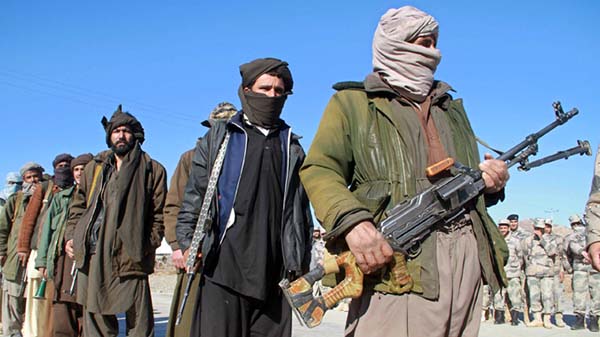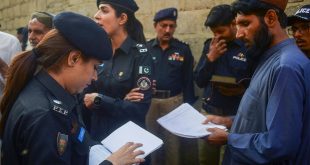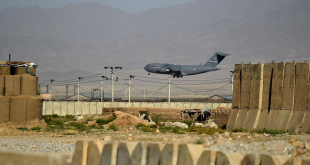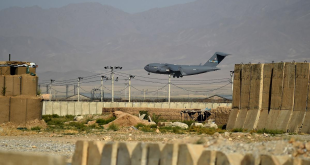Some Afghans are skeptical about an initiative intended to convince fighters to lay down their arms
KABUL: Afghanistan’s High Peace Council has come in for some tough criticism in Kunduz, where militants briefly captured the provincial capital last year.
The Council was set up five years ago to handle attempts at reconciliation with the Taliban. Although it has persuaded hundreds of former insurgents to come over to the government’s side, speakers at IWPR debates last month emphasized that there was still a long way to go.
Taliban forces seized control of the northeastern provincial capital for a few days in September 2015. Although the militants withdrew from Kunduz city on October 3, their actions were a major propaganda coup and they remain active in the surrounding countryside.
“If the high peace council had been effective in Kunduz, then Kunduz should not have fallen,” said Abdul Wase Basil, the spokesman for the governor of Kunduz. He added that the funds dedicated to reconciliation efforts would have been better spent on infrastructure projects.
Debate participant Sanaullah Sayedzada asked Basil what the governor was doing to hold the work of the Council in Kunduz to account.
“The provincial departments submit their reports every week to the governor’s office. So if the reports submitted by the high peace council to you over the past five years showed that they were unsuccessful, what actions have you taken as the monitoring entity?” he asked.
Basil said that the provincial governor had consistently criticized the Council’s actions, but said that the management of peace efforts was under the jurisdiction of the central government in Kabul.
“Generally speaking, we have not been satisfied with the performance of this council,” he said.
Civil society activist Abdul Shukoor Dost said that ordinary villagers and armed thugs had been presented as former Taliban members to the council.
The whole program needed to be rethought, he added.
“In my view, the policy designed and developed for bringing peace in Afghanistan is not a well- thought strategy that matches the problems on the ground,” Dost continued. “It has had no success, not only in Kunduz, but in all of the provinces of Afghanistan.”
Young men joined the insurgency partly due to unemployment, Dost said. In addition, the role of Pakistan in fuelling the conflict could not be ignored, he continued.
“Peace will not be ensured in Afghanistan, unless and until our government convinces Pakistan [to take action],” Dost concluded.
Kunduz provincial council member Gulam Rabani agreed, adding, “In order to bring peace to Afghanistan we have to reach an understanding with Pakistan and other world powers.”
He went on to claim that the Council’s achievements had been negligible.
“We have officially investigated this matter,” he said. “Throughout this period, no one from the armed opposition nor a member of Taliban has joined the peace process.”
Rabani gave the example of one militia group that he alleged were still operational even though they had formally surrendered to the National Directorate of Security.
At another debate about the reconciliation process, in Badakhshan, a High Peace Council representative said that their work had had a real impact.
Amrullah Habibi, head of the Council’s provincial public awareness committee, said that their data showed large numbers of insurgents had laid down their arms.
“If we look at the figures, there is no doubt that 20,000 trained and armed fighters joining the peace process is a huge achievement.”
Zofnoon Natiq, head of the department of women’s affairs in Badakhshan, agreed that the Council’s achievements should be recognized.
“Over the past five years, the high peace council has organized public awareness events for women in the provincial capital and in the districts of Badakhshan, which benefit the women financially and they are involved in planning and deciding such events.”
But Badakhshan provincial council member Ahmad Jawed Mujaddidi accused the Council of being dominated by factional politics.
“I think that most of the members of the peace committee have connections to a single political party,” he continued, adding that the Council’s three representatives from Badakhshan “have not participated and have had no achievements”.
University student Shafiq also said the Council’s performance had been lackluster.
“This council can claim no successes,” he said. “Just that 700 million US dollars was spent with nothing effective done to peace closer.”
In Badghis, the provincial head of the Council’s secretariat pointed to specific program implemented in the local community.
Mohammad Akbar Hotak said that the Council had rolled out more than ten projects to bring individual fighters into the peace process.
An ongoing lack of security and tribal tensions were the main challenges they faced, he added.
“[For example] people in Muqur district who joined this process are currently living in Qala-e nau, the provincial capital, due to security problems,” Hotak explained.
Mohammad Afzal Afzali, head of Muqur’s development council, said that the Council needed to focus on building public trust.
“People have collaborated with the High Peace Council and their projects have been effective, to some extent,” he continued. “It’s the duty of everyone to work to bring peace to the region.”
His colleague Abo Bakr Azimi, the executive officer of Muqur district, was less complimentary. He said that Council officials had failed to cooperate with the district administration. A close level of collaboration with local officials was essential for program to have an impact, he added.
Civil society activist Sher Aqa Ehsas said that Council had just wasted public money. The real solution to the conflict lay elsewhere, he said, adding, “The government should really be negotiating with Pakistan, which controls the leadership of the Taliban.”—(IWPR Afghanistan)
 Afghanistan Times
Afghanistan Times




